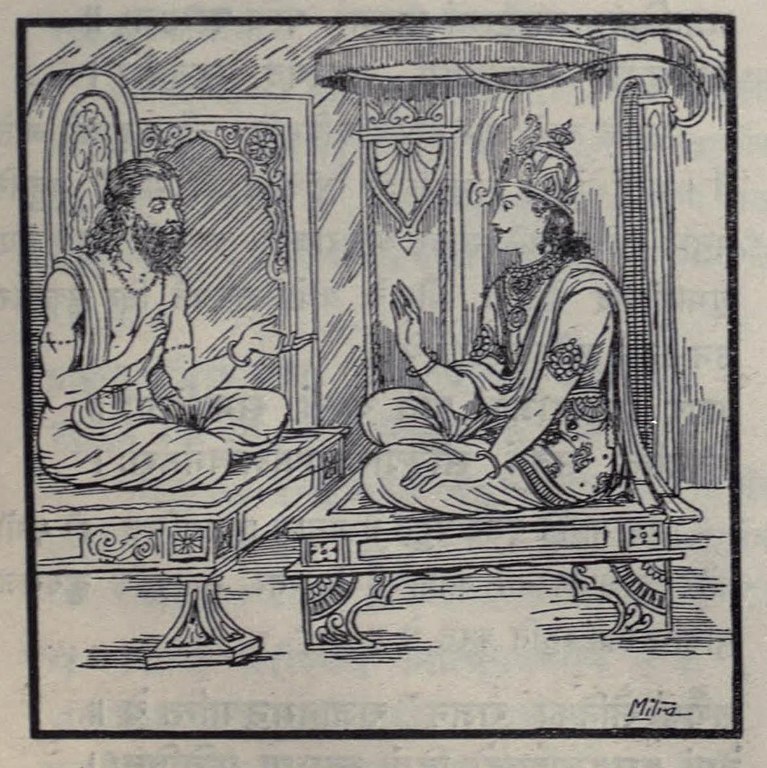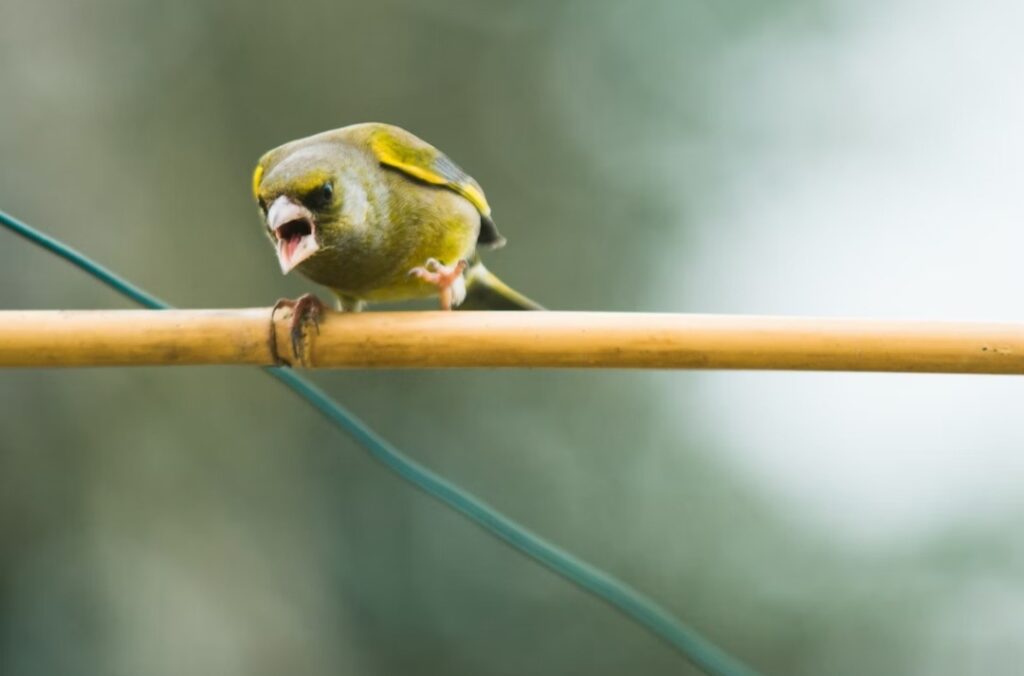
Table of Contents (The Complete Mahabharata in Simple English)
Previous Post: Did Sringin Regret His Rash Action?
| Note: In the previous post, we learnt that Sage Samika’s wise words did not have much effect on Sringin. After explaining to Sringin the importance of keeping his anger under control, the rishi turned his attention to helping the king. In this post, we will find out how Rishi Samika tried to help King Parikshit. |
Sage Samika said to Sringin, “O child, by forgiveness you can obtain worlds that are beyond the reach of Brahma Deva also. In my own ascetic practice, I have adopted peacefulness and have the desire to do as much good as I possibly can. Therefore, right now, I must do something to help the king.”
The Sage summoned one of his disciples called Gaurmukha who also practised ascetic penances and possessed excellent manners. He explained the recent events to Gaurmukha and advised him to go to the King, inquire about his welfare, and then give the actual message of the danger he faced because of the curse.
When Gaurmukha reached Parikshit’s palace in Hastinapur, he sent a message to the king through a royal servant, to inform the king about his arrival.
Upon reaching the Parikshit’s court, Gaurmukha was respectfully worshipped by the noble monarch. After resting for some time, Gaurmukha relayed the Sage’s message to the king in the presence of his ministers.
Gaurmukha said, “O king of kings, I have been sent by a rishi called Samika who lives in your kingdom. The rishi practises hard ascetic devotions, has gained control over his passions, and is a peaceful as well as virtuous soul. O tiger among men, when the rishi was observing a vow of silence, a snake was placed on his shoulder by thyself. Even though the sage forgave you, his son, who is young and gets angry very quickly, was unable to forgive you. You have been cursed by the child that Takshaka will cause your death within seven nights. The sage asked his son to save you, but the child is unable to overcome his anger. His words are powerful and there’s nobody who can counter them. Therefore, I have been sent to convey this message for your safety.
| Note: I loved Sage Samika’s patience, compassion, courage, and wisdom. He is patient towards his son’s immaturity, he feels compassion for the king and wants to save him, he is fearless in sending a messenger with such a dangerous message to the king, and he is wise because he teaches Gaurmukha the proper protocol and the correct words to use when approaching the king. Through this action, he practises what Sri Krishna taught in the Bhagwat Gita – to perform his duty with love, without fear, and without being attached to the result. In the next post, we will find out how Parikshit responded to the sage’s message. |
Table of Contents (The Complete Mahabharata in Simple English)
Next Post: King Parikshit’s Response to Rishi Samika’s Message



